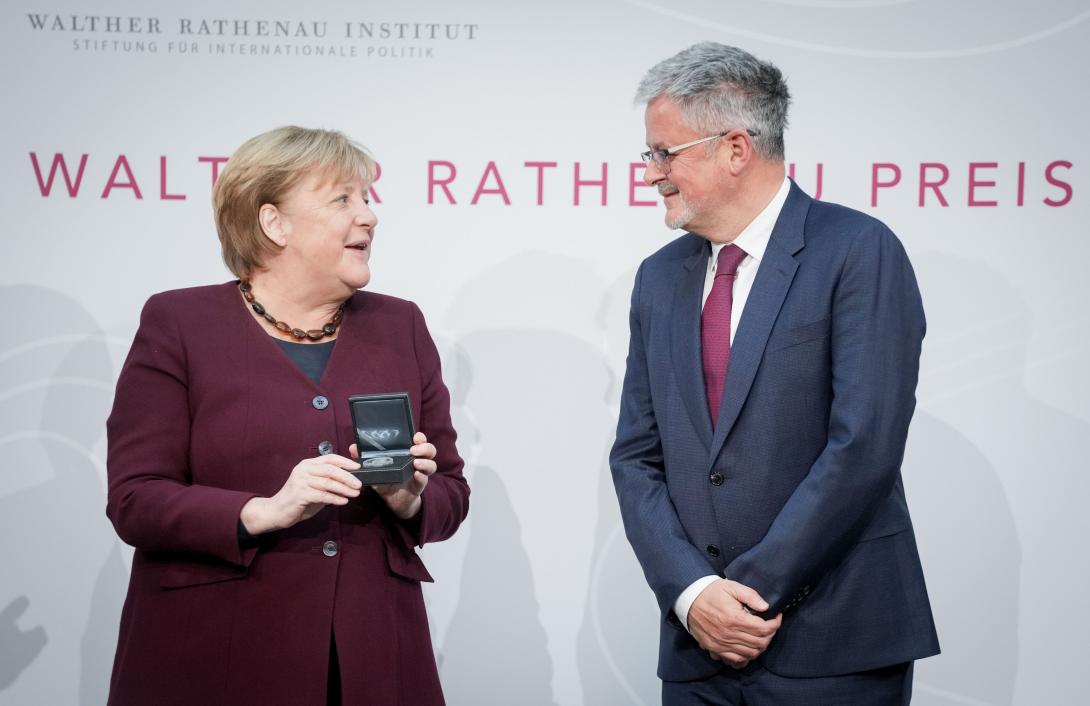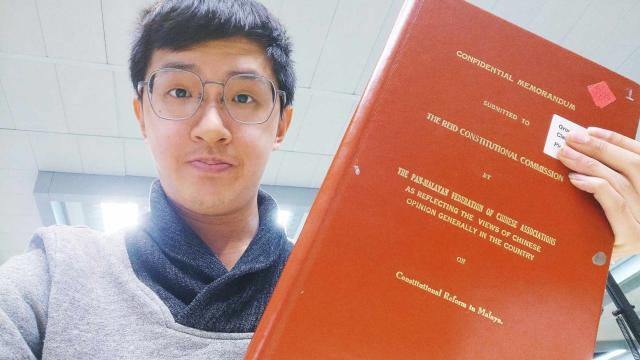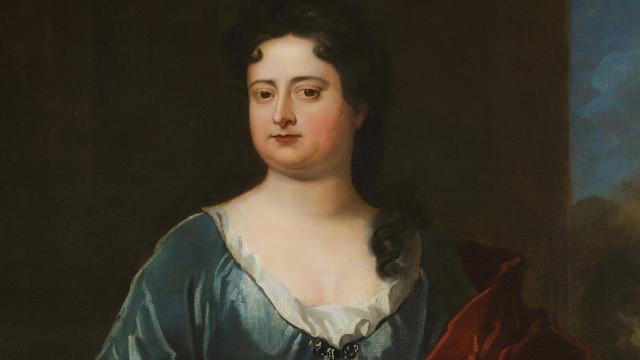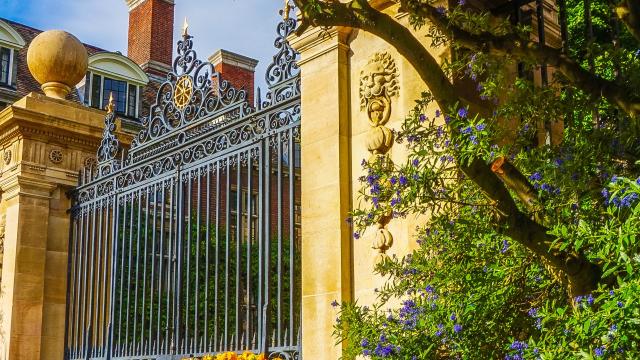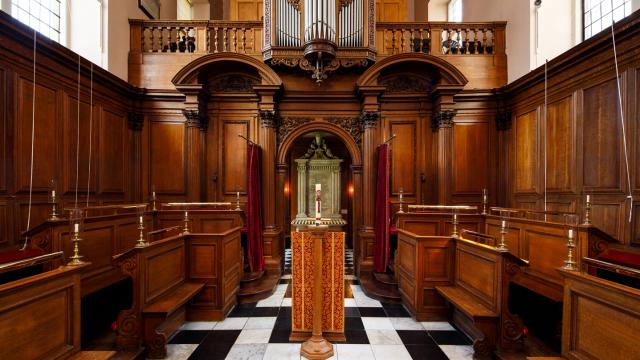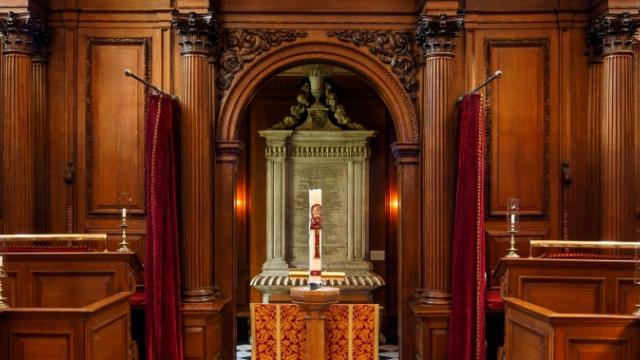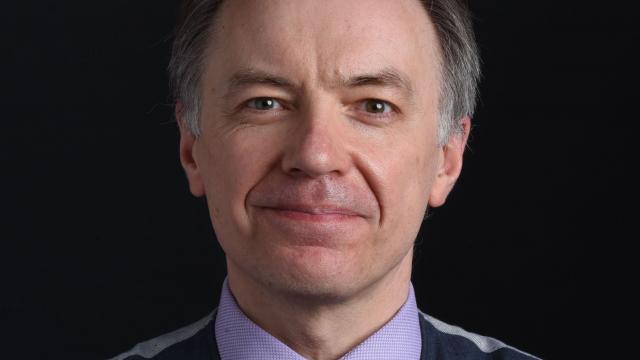
A St Catharine’s Fellow was centre stage for a ceremony honouring Angela Merkel, Chancellor of Germany, for her "tireless commitment to a world order based on understanding". The Chancellor received the Walther Rathenau Prize in recognition of her life's work in foreign policy at an event on 5 November in Berlin, where Professor Sir Chris Clark (1990) delivered the laudation.
Sir Chris is the Ostrer Professorial Fellow in History at St Catharine’s and the University’s Regius Professor of History. His research interests are centred on the modern history of Germany and continental Europe.
Speaking at the ceremony, the Chancellor admitted that his laudation was “very touching”:
“I have taken part in the presentation of the Walther Rathenau Prize four times so far, each time as a laudator. It is therefore a bit strange for me to stand on the other side this time, as it were, and to accept the award with a laudation… I thank you from the bottom of my heart for your words… Historians like you, Professor Clark, are wonderful at tracing how each generation has had and has to overcome its challenges.”
Walther Rathenau Institute is a non-partisan, non-profit foundation in Berlin. It commemorates the work of the industrialist, foreign politician and foreign minister of the Weimar Republic, Walther Rathenau, who was murdered by right-wing extremists in June 1922. Since 2008, the Walther Rathenau Prize has regularly recognized an outstanding life's work in foreign policy. It was awarded for the ninth time this year, with previous winners including the former Israeli President and Nobel Peace Prize laureate Shimon Peres, the former US Secretary of State Hillary Clinton and the Office of the United Nations High Commissioner for Refugees.
In his Laudatio for the Chancellor, Sir Chris organised his remarks around two questions. What is the nature of the era in which we find ourselves, the era that began with the fall of the Berlin Wall in 1989? And what is it about Angela Merkel, her outlook, skills and personality, that has enabled her to navigate for so long the turbulent waters of this era?
He also reminded the audience of a visit that Chancellor Merkel made to St Catharine's in 1994, when she was a minister in one of Helmut Kohl's governments. The visit was in honour of her longstanding friendship with the late Professor Nick Handy (1960, Mathematics; Fellow 1965; Emeritus Fellow 2004), one of the most distinguished quantum chemists of his generation. As a young scientist in the German Democratic Republic, the then Dr Merkel had benefited from his advice and mentorship. During a conversation after the event, the Chancellor spoke fondly of Nick, remembered his fearsome intelligence and recalled what a terrifying experience it was to be grilled by him on a research project: “We quaked in our boots.”
Having been in office since 2005, Chancellor Merkel announced that she would not run again in the German parliamentary elections in September 2021. She attended the event in Berlin this month as Chancellor in a caretaker capacity and is due to remain in this position until her successor is sworn in.
As part of her official remarks accepting the Walther Rathenau Prize, the Chancellor concluded:
“We must never let up in our efforts to overcome hatred, violence, nationalism, racism and anti-Semitism.”
